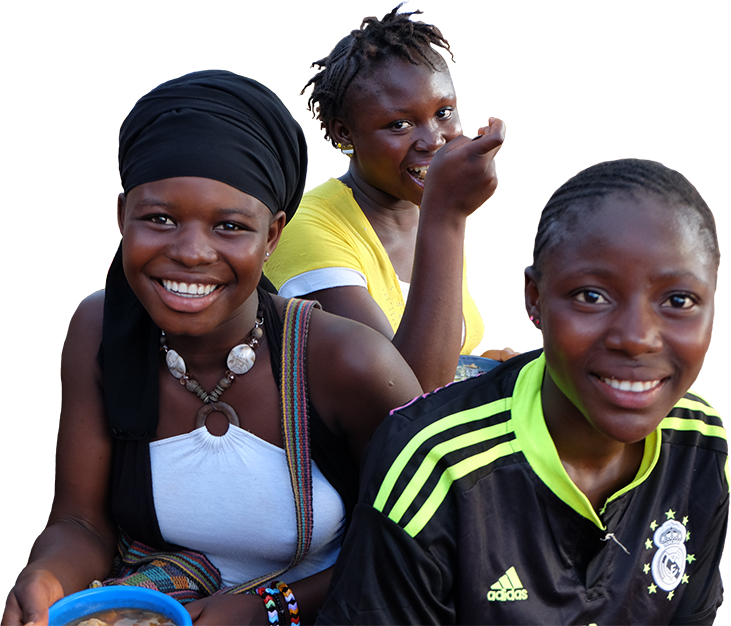Improving adolescent nutrition depends heavily on behaviors such as diet and eating practices, exercise, lifestyle, and use of health services. Social and behavior change (SBC) strategies must consider how unique structural and environmental factors that affect adolescents’ access to services and adoption of priority behaviors. Formative research, concept testing, and pre-testing of materials and approaches are needed to identify barriers and enablers to behavior change and to better understand how adolescents engage with family members, friends, teachers, health care providers, religious leaders, other community members, mass media, and social media. The Adolescent Nutrition Resource Bank includes posters, videos, counseling cards, and other SBC materials. If you have relevant SBC resources, please send them to info@advancingnutrition.org.
We found 111 resource(s)
Adolescent Girls Nutrition Related Practices in the Amhara, Oromia, SNNP, and Tigray Regions of Ethiopia: A Report on Formative Research Findings and Recommendations for SBCC Programming
Landscape Analysis published by USAID in
This report summarizes the results of research designed to implement mGlobal of the recommendations from USAID/ENGINE formative research on adolescent girls’ nutrition-related behaviors. The purpose of this new research is to contribute to the development of strategic communication interventions, alongside with other interventions, to help improve…
Leaving No One Behind: Making the Case for Adolescent Girls
Technical Report published by IFAD in
This report summarizes the 2018 international conference “Leaving No One Behind: Making the Case for Adolescent Girls.” The report presents the main messages that emerged during the event and provides an overview of the highlights of the panel presentations and discussions.
Promotion of WIFS by Priyanka Chopra
Video/Animation published by National Health Mission, India in
This video features Bollywood actor Priyanka Chopra, who presents key messages about anemia in India and encourages adolescents to take their weekly iron and folic acid supplements and deworming tablets.
Weekly Iron Folic Acid Supplementation for Prevention and Reduction of Anaemia among School-going Adolescent Girls (MITRA Youth) Activity Design Document
Reference Material published by Australia Department of Foreign Affairs and Trade in
The MITRA Youth program design document describes how Nutrition International is expanding pilot work on the MITRA program to improve the nutritional status of adolescent girls aged 15-18 years in two provinces in Indonesia. MITRA Youth focuses on the distribution and uptake of weekly iron folic acid supplements through secondary schools for…
Preparing Adolescents for Young Adulthood (PAYA): Modules 1 & 2
Information, Education and Communication Materials published by Stepping Stones in
It's My Move is a program that provides youth ages 16-21 years of age the skills and support they need to be successful in independent living. It was originally developed for adolescents aging out of the foster care system and is designed to provide critical information on how to function as an independent adult. Modules 1 and 2 of the…
Madagascar Plan National D'Action pour la Nutrition (PNAN III) (2017-2021)
Policy published by Republic of Madagascar in
This document contains Madagascar's overarching nutrition strategy from 2017 to 2021 (PNAN III). PNAN III incorporates provisions for adolescent nutrition in school and community settings, including nutrition education, IFA supplements, and deworming.
National Strategy for Adolescent Health 2017-2030 (Bangladesh)
Policy published by Directorate General of Family Planning, GOB, MCH Services Unit in
This National Strategy for Adolescent Health in Bangladesh 2017-2030 was developed to address the overall health needs of adolescents. The four adolescent health priority areas addressed in the national strategy are adolescent sexual and reproductive health, violence against adolescents, adolescent nutrition, and the mental health of adolescents.
Children's Participation in Learning and Action for Nutrition (PCAANS): A Basic Guide for the Promotion of Nutrition and School Health
Training Material published by Children for Health in
This manual was developed to support teachers, administrators, and other school staff in one province in Mozambique to teach key nutrition and health messages that are aligned with the primary school curriculum. The program focused on educating children in grades 4-7 about nutrition and helping them to develop relevant skills and attitudes.



